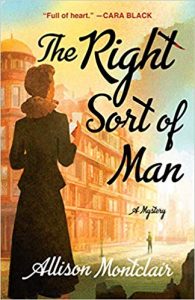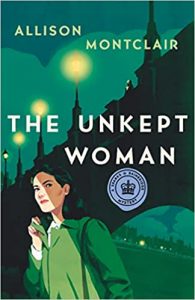 In the Shadow of the Fall (Guardians of the Gods, #1) by Tobi Ogundiran
In the Shadow of the Fall (Guardians of the Gods, #1) by Tobi Ogundiran Format: eARC
Source: supplied by publisher via Edelweiss
Formats available: hardcover, ebook, audiobook
Genres: epic fantasy, fantasy
Series: Guardians of the Gods #1
Pages: 160
Published by Tordotcom on July 23, 2024
Purchasing Info: Author's Website, Publisher's Website, Amazon, Barnes & Noble, Kobo, Bookshop.org, Better World Books
Goodreads
A cosmic war reignites and the fate of the orisha lie in the hands of an untried acolyte in this first entry of a new epic fantasy novella duology by Tobi Ogundiran, for fans of N. K. Jemisin and Suyi Davies Okungbowa.
" The novella of the year has arrived!" ―Mark Oshiro, #1 New York Times bestselling author
Ashâke is an acolyte in the temple of Ifa, yearning for the day she is made a priest and sent out into the world to serve the orisha. But of all the acolytes, she is the only one the orisha refuse to speak to. For years she has watched from the sidelines as peer after peer passes her by and ascends to full priesthood.
Desperate, Ashâke attempts to summon and trap an orisha―any orisha. Instead, she experiences a vision so terrible it draws the attention of a powerful enemy sect and thrusts Ashâke into the center of a centuries-old war that will shatter the very foundations of her world.
My Review:
It’s not really a surprise that the story begins with Ashâke defying all the rules she’s lived by for her entire life. It’s more of a surprise that she’s been stewing for FIVE whole years about it.
Because something is clearly, maybe not rotten but certainly wrong, in the temple of Ifa that Ashâke has dedicated her life to. She should have been raised from acolyte to priest five years ago. She should have heard the orisha speak to her.
It may sound contradictory that she should have expected the gods to speak to her, but, well, they’re generally not that picky. They’ve spoken to EVERYONE else who has made it that far, EXCEPT Ashâke. Her inability to progress is notable and entirely too noticeable.
That the priests who rule the temple can neither explain her lack nor do something about the rising levels of bullying and abuse that Ashâke has suffered, as increasing numbers of her juniors pass her over for promotion, is the kind of problem that many people would feel compelled to rectify, sooner or later.
Unfortunately, now that Ashâke has disobeyed all the rules and learned much – but not all – of the things she was not supposed to ever discover, she’s only made things a whole lot worse. Not just for herself, but for everyone at the temple.
And for everyone she touches. Along with, quite possibly, the whole, entire world.
Escape Rating B: I generally love novellas for the way that they tell a complete story in a non-doorstoppy length. Tordotcom usually does an excellent job of producing novellas that are exactly the length they’re meant to be and don’t feel like too much got left out in the editing to make a word count that isn’t right for the story being told. Howsomever, In the Shadow of the Fall is the exception to that rule. It’s more of an interesting start to a story than the actual story.
This is intended to be the first half of a duology, and it shows a bit too much. I felt like I got half a book rather than a complete novella that has revealed plenty but has more to come. The ending of In the Shadow of the Fall, with its drumbeat of lie after lie being revealed and Ashâke’s bitter need to adjust her entire worldview, wasn’t so much a cliffhanger as running headlong off the whole entire cliff.
Where this reader is left in a heap on the horns of a HUGE dilemma, in that I was absolutely fascinated by the story that I got, up until it came to a screeching halt.
I’m saying that and I generally love stories where the twist is as unexpected as this one is and the truth – no matter how painful – sets the protagonist free to make a new course and right the wrongs they’ve finally been apprised of.
 Something which I’m sure is intended to happen in the second book in the duology, At the Fount of Creation, which is not coming out until JANUARY – making the situation doubly frustrating for the reader. Or at least for this reader.
Something which I’m sure is intended to happen in the second book in the duology, At the Fount of Creation, which is not coming out until JANUARY – making the situation doubly frustrating for the reader. Or at least for this reader.
I hoped I’d feel better about the whole thing once the second book was announced – which has turned out to be true. But I must confess that I finally have an eARC which I will be reading ASAP, because I NEED TO KNOW what happens to Ashâke and her world.
As I said, the ending of In the Shadow of the Fall wasn’t so much of a cliffhanger as it was running headlong off the cliff and/or slamming headfirst into that cliff’s base. A painful and sudden stop. My personal recommendation would be to save yourself that frustration and wait to read the entire duology in one go as soon as you can grab copies of both books in January.
Because this first book is a real gut-punch of a story – it honestly HURTS not to know how it’s all going to work out. And based on the first half, once we do find out in At the Fount of Creation – it’s going to be grand and heartbreaking in equal, glorious measure.

 More Days at the Morisaki Bookshop (Days at the Morisaki Bookshop, #2) by
More Days at the Morisaki Bookshop (Days at the Morisaki Bookshop, #2) by  Escape Rating A-: I picked up More Days at the Morisaki Bookshop because, having fallen in love with the first book,
Escape Rating A-: I picked up More Days at the Morisaki Bookshop because, having fallen in love with the first book,  So maybe don’t listen to that part while you’re driving because the urge to cry right along with Takako is pretty much irresistible.
So maybe don’t listen to that part while you’re driving because the urge to cry right along with Takako is pretty much irresistible. Lost to Eternity by
Lost to Eternity by  Escape Rating B: Like most media novelizations, Lost to Eternity is absolutely a story for the fans – and not just because of its homage to the fanservice of Dr. Gillian Taylor’s fate in
Escape Rating B: Like most media novelizations, Lost to Eternity is absolutely a story for the fans – and not just because of its homage to the fanservice of Dr. Gillian Taylor’s fate in  Summers End (A Shady Hollow Mystery, #5) by
Summers End (A Shady Hollow Mystery, #5) by  All the characters in Shady Hollow are animals. Which doesn’t mean that they aren’t people – because they absolutely are. Even if, or especially because, their species and its characteristics allows the story to overtly display certain facets of their personalities that have to be revealed a bit more obliquely in, let’s call them more traditional, cozy fantasies.
All the characters in Shady Hollow are animals. Which doesn’t mean that they aren’t people – because they absolutely are. Even if, or especially because, their species and its characteristics allows the story to overtly display certain facets of their personalities that have to be revealed a bit more obliquely in, let’s call them more traditional, cozy fantasies. Escape Rating A-: This series has always struck me as being a bit of the case of the bear dancing – and pardon the pun about Orville Braun. But seriously, although the series NEVER takes itself too seriously, the whole thing has always struck me as something that one is not surprised is done well but that it’s done AT ALL.
Escape Rating A-: This series has always struck me as being a bit of the case of the bear dancing – and pardon the pun about Orville Braun. But seriously, although the series NEVER takes itself too seriously, the whole thing has always struck me as something that one is not surprised is done well but that it’s done AT ALL. Chaos at the Lazy Bones Bookshop (Halloween Bookshop Mystery, #1) by
Chaos at the Lazy Bones Bookshop (Halloween Bookshop Mystery, #1) by  Elyan Hollow reads as if it’s exactly what you’d get if real towns like Frankenmuth, Michigan or nearby Leavenworth, Washington had decided to embrace
Elyan Hollow reads as if it’s exactly what you’d get if real towns like Frankenmuth, Michigan or nearby Leavenworth, Washington had decided to embrace  The mysteries that needed to get solved got solved, but the family mess is, well, messy and that looks like it will continue to be so in the books ahead.
The mysteries that needed to get solved got solved, but the family mess is, well, messy and that looks like it will continue to be so in the books ahead.

 Current Giveaways:
Current Giveaways: Blog Recap:
Blog Recap: Coming This Week:
Coming This Week:





 Murder at the White Palace (Sparks & Bainbridge, #6) by
Murder at the White Palace (Sparks & Bainbridge, #6) by  Over the course of the
Over the course of the  Escape Rating A+: I was up until 3 am finishing this, so an A+ it most definitely is. I tried telling myself I could finish AFTER breakfast, but myself wasn’t listening. I simply HAD to find out whodunnit!
Escape Rating A+: I was up until 3 am finishing this, so an A+ it most definitely is. I tried telling myself I could finish AFTER breakfast, but myself wasn’t listening. I simply HAD to find out whodunnit! But the case itself isn’t so much about Archie as it is about Archie poking his nose in places that it doesn’t belong. It’s about the past – and not even Archie’s own. While Archie is fighting for his life in the hospital, and Iris Sparks is emotionally flailing about the potential loss of a future she wasn’t sure that she wanted until it was nearly snatched out of her hands – it’s up to Gwen Bainbridge to get to the bottom of the case that literally dropped on her head.
But the case itself isn’t so much about Archie as it is about Archie poking his nose in places that it doesn’t belong. It’s about the past – and not even Archie’s own. While Archie is fighting for his life in the hospital, and Iris Sparks is emotionally flailing about the potential loss of a future she wasn’t sure that she wanted until it was nearly snatched out of her hands – it’s up to Gwen Bainbridge to get to the bottom of the case that literally dropped on her head. The Dallergut Dream Department Store by
The Dallergut Dream Department Store by  In short, The Dallergut Dream Department Store is utterly charming, and I was absolutely charmed – even in the places where I had to tell the logical side of my brain to go to sleep and just dream the whole thing.
In short, The Dallergut Dream Department Store is utterly charming, and I was absolutely charmed – even in the places where I had to tell the logical side of my brain to go to sleep and just dream the whole thing.

 🥥 🌴 🌺 🍍 🏄♀️ 🏝️ 🍹 ⛱️ 🌞 🌊 😎 🍉 🍦 🐚 🍒 🌸 🍃 🍓
🥥 🌴 🌺 🍍 🏄♀️ 🏝️ 🍹 ⛱️ 🌞 🌊 😎 🍉 🍦 🐚 🍒 🌸 🍃 🍓